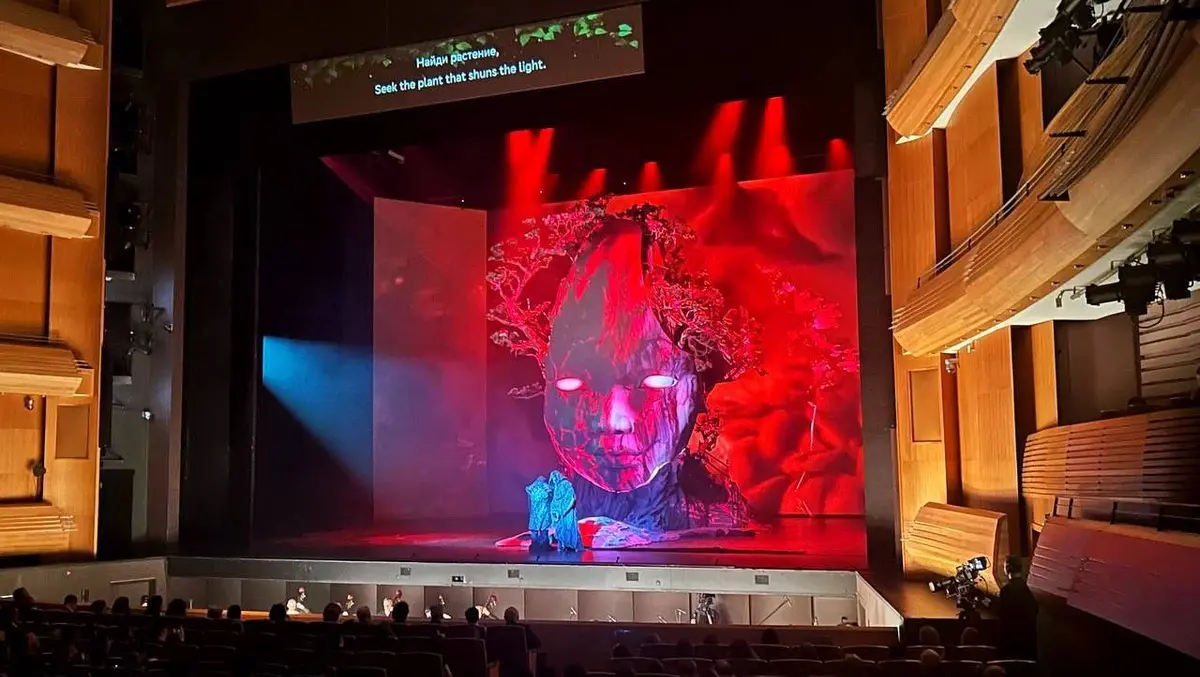
Artificial intelligence helps create world’s first opera at Mariinsky
The Mariinsky Theatre in St. Petersburg has staged the world's first opera created with the assistance of artificial intelligence, premiering the mystical work Mandragora as part of the Stars of the White Nights Music Festival.
Opera and technology
The performance marks a milestone in the intersection of art and technology, with the opera being based on an original concept by Peter Tchaikovsky and Sergey Rachinsky. The work was completed through the combined efforts of composer Peter Dranga and neural networks developed by Sberbank. Artificial intelligence systems played a role throughout the creative process: GigaChat finalised the libretto, SymFormer contributed to the musical composition, and Kandinsky provided the visual and scenic design. All technological contributions were overseen to maintain adherence to the intended artistic style.
The premiere of Mandragora was scheduled to coincide with the 185th anniversary of Tchaikovsky's birth. The opera's unveiling in St. Petersburg holds particular significance, given that the city is where Tchaikovsky lived and worked, and where the original production was intended to be staged. The production is now set to become part of the Mariinsky Theatre's official repertoire for the 2025-2026 season.
Collaboration and creative control
German Gref, President and Chairman of the Management Board at Sberbank, reflected on the collaborative nature of the opera's creation and the advantages of integrating AI technologies into artistic projects.
Mandragora is a collaboration between a large number of people: our wonderful musician and composer Peter Dranga, the brilliant maestro Valery Gergiev and, of course, the artists of the Mariinsky Theatre. And all this is implemented together with artificial intelligence, which saves a huge amount of time. Imagine how long it takes to arrange a score for a large symphony orchestra. This is not the composers' favorite work, because it takes up years of their lives. And thanks to artificial intelligence, a person can focus on creativity — the realisation of what is inside him. And artificial intelligence can be a very powerful helper and inspiration.
The conductor, Artistic Director, and General Director of the Mariinsky and Bolshoi Theatres, Valery Gergiev, commented on the balance between human creativity and technological innovation in the staging of the opera.
Today, we have a determined attempt with our great friends from Sberbank to make a new stage version, featuring not only human talent, but also artificial intelligence. Recently, the latest technologies have been performing on the stages of world theaters, including Russia. An incredible number of interesting things has already been done in the world, and in the world of opera and ballet, using new technologies for real without breaking the natural connection with the creative work on which it is superimposed is the most difficult thing. We hope that our bold move will be received with interest.
Composer and Merited Artist of the Russian Federation, Peter Dranga, described the collaborative process and emphasised the spirit of cooperation between human and artificial intelligence in developing the piece. "We have a very interesting story of interaction, when artificial intelligence offers options, helps to refine, speeds up the process and makes it even more interesting. And this is by no means a competition, but an absolute collaboration. I think it will help us all a lot in the future. And our opera should change not only our characters, but also everyone around who watched it. Because people always do certain things in the name of something. They are growing spiritually. The opera is about that. And everything happens inside the head that you will see on stage. This is the personification of Mandragora herself."
International production
The debut of Mandragora comprised more than 170 artists, featuring the Grand Symphony Orchestra and celebrated soloists. The stage design centred around a giant head, serving as a canvas for video mapping and the presentation of imaginative visual worlds. Direction was led by Ilya Ustyantsev, with costumes by Sergey Novikov and set design by Alexander Kudryavtsev. Other contributors included Alexander Sivaev for lighting, Murad Ibatullin for 3D graphics, Boris Tsibisov for mapping, and Maxim Kozlov as head of production.
The project is international in scope, involving soloists, choirs, and orchestras who frequently perform on prominent stages throughout Europe and Asia. Alina Chertash and Vasily Ladyuk, both acclaimed and decorated in international competitions, performed the lead roles.
Oversight for the production's technological and promotional aspects was provided by Sber Metaverse Tech and Sber Marketing, respectively.


